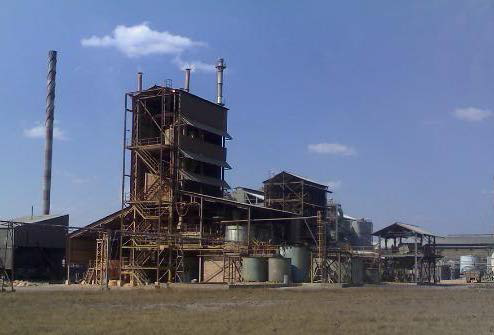Sable Chemicals Pvt Ltd., jointly owned by TA Holdings Ltd. and Chemplex Corp., is looking at new ways how to manufacture ammonium nitrate following the cut in electricity supply to the company due to power shortages. The company has examined the commercial viability of using coal-bed methane and the outcomes have been more than satisfactory. Sable is now keen on migrating to the new technology although it admits that the process “will take some time” and will “regrettably necessitate a realignment of the manning levels to match the new business model”.
Sable was using power-intensive electrolysis technology to make the hydrogen necessary to make ammonia at its Kwekwe plant, which accounted for almost all of the 40 megawatts of electricity that the company was using. The authorities cut supply to Sable last week to 10 megawatts. The entire country is falling short of electricity – Zimbabwe produces only about 984 megawatts of electricity, which is 2,200 megawatts less than what it needs. The majority of the remaining power comes from the Kariba hydropower plant, where reservoir levels have fallen to just about a third, according to the Zambezi River Authority.
Sable, the only producer of ammonium nitrate in Zimbabwe, has built capacity to manufacture 240,000 metric tons of ammonium nitrate every year. It uses 115,000 tons of ammonia to produce the fertilizer, out of which more than a half was produced at Kwekwe. The rest of the necessary amount was imported from South Africa, which will continue to be Sable’s trading partner until the company decides on a new manufacturing method.
According to Joel Gabuzza of the opposition Movement for Democratic Change, fertilizer prices are among the highest in the region and might likely go further up. Mr Gabuzza commented that “we don’t want to see a repeat of what happened at Zisco, also in Midlands province, which has collapsed,” referring to a state-owned steel mill that is still closed even despite a $3.5 billion contract with India’s Essar Group meant to make it work again. “These companies are vital for the revival of the economy, but government doesn’t seem to care,” he added.




